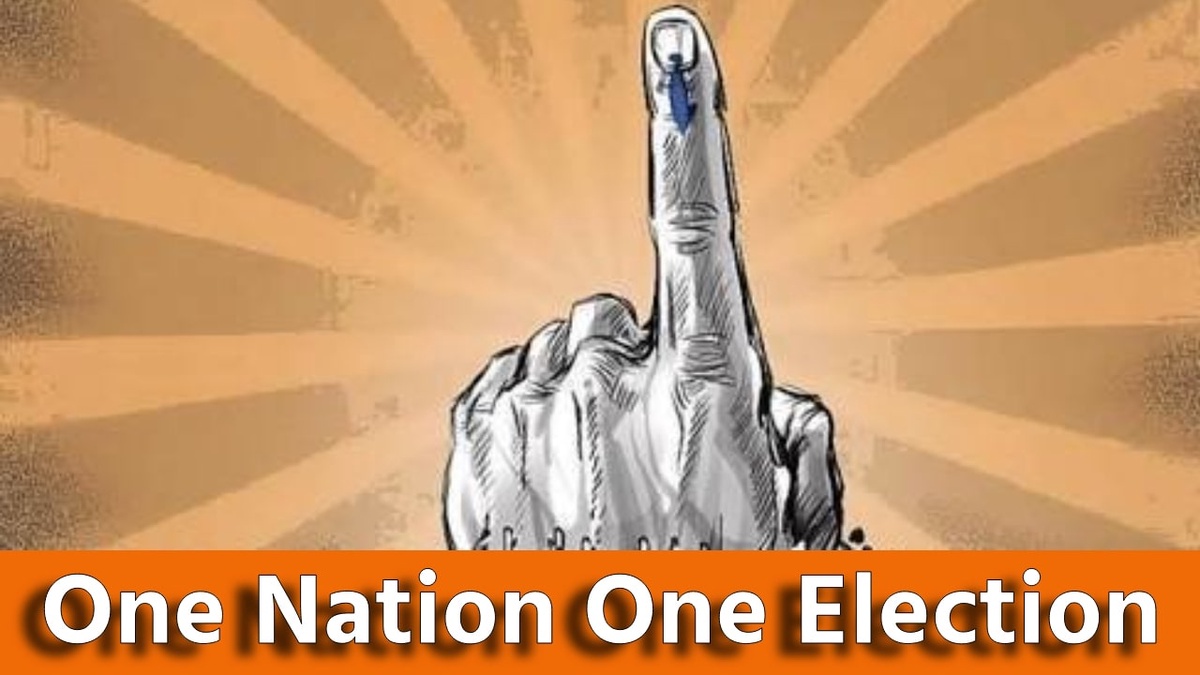In the complex tapestry of democracy, the electoral process is the vital thread that weaves together the aspirations and voices of a nation. Over the years, the concept of "One Nation, One Election" has emerged as a potential transformative change to streamline the electoral machinery and foster a more cohesive democratic system. This concept envisions synchronizing the general elections for the Lok Sabha (the lower house of India's parliament) and state legislative assemblies, creating a unified voting cycle across the nation.
Historical Context:
The roots of the idea can be traced back to the early days of independent India. The first three general elections (1952, 1957, and 1962) were synchronized, aligning the parliamentary and state assembly polls. However, due to various reasons such as political instability, dissolution of state assemblies, and the desire for local autonomy, the simultaneous elections were gradually abandoned.
Advantages of One Nation One Election:
-
Cost Efficiency: Conducting elections is an expensive affair. One Nation, One Election could substantially reduce the financial burden on the exchequer by consolidating various polls into a single event. This would save resources spent on security, logistics, and other administrative functions.
-
Stable Governance: Simultaneous elections can provide a stable and continuous government at both the national and state levels. This stability could potentially enhance the effectiveness of governance by minimizing disruptions caused by frequent elections.
-
Reduced Campaigning Fatigue: With synchronized elections, political parties and leaders would be relieved of the constant cycle of campaigning. This would allow them to focus on governance and policy implementation, fostering a more results-oriented approach.
-
Increased Voter Turnout: Consolidating elections might lead to higher voter turnout as citizens would only need to participate in the electoral process once in a certain time frame. This could contribute to a more engaged and informed electorate.
-
Streamlined Administration: A unified election cycle could simplify administrative processes, reducing the strain on the Election Commission and other associated bodies. This could lead to more efficient planning and execution of the electoral process.
Challenges and Concerns:
-
Constitutional Amendments: Implementing One Nation, One Election would require significant changes to the Indian Constitution. Amendments related to the tenure of state assemblies, the synchronization of their terms with the Lok Sabha, and other procedural aspects would need careful consideration.
-
Political Opposition: The proposal has faced resistance from some political parties, which argue that it might undermine federalism by centralizing power. There are concerns that simultaneous elections could overshadow regional issues and favor national-level parties.
-
Logistical Challenges: Coordinating the logistics of a nationwide election is a colossal task. Ensuring that the electoral machinery is well-prepared for such a massive undertaking, especially in a country as vast and diverse as India, poses significant challenges.
Conclusion:
The idea of One Nation, One Election is a complex and ambitious proposal that aims to reshape the electoral landscape of India. While it offers potential benefits such as cost efficiency, stable governance, and increased voter turnout, the road to implementation is fraught with constitutional, political, and logistical challenges. Striking a balance between the principles of federalism and the desire for a more streamlined electoral process is crucial. As this concept continues to be a subject of debate and discussion, its success will depend on the ability of policymakers to address concerns and build consensus among diverse stakeholders. Unified voting has the potential to redefine the democratic experience in India, but its realization requires careful navigation through the intricacies of the world's largest democracy.


No comments yet